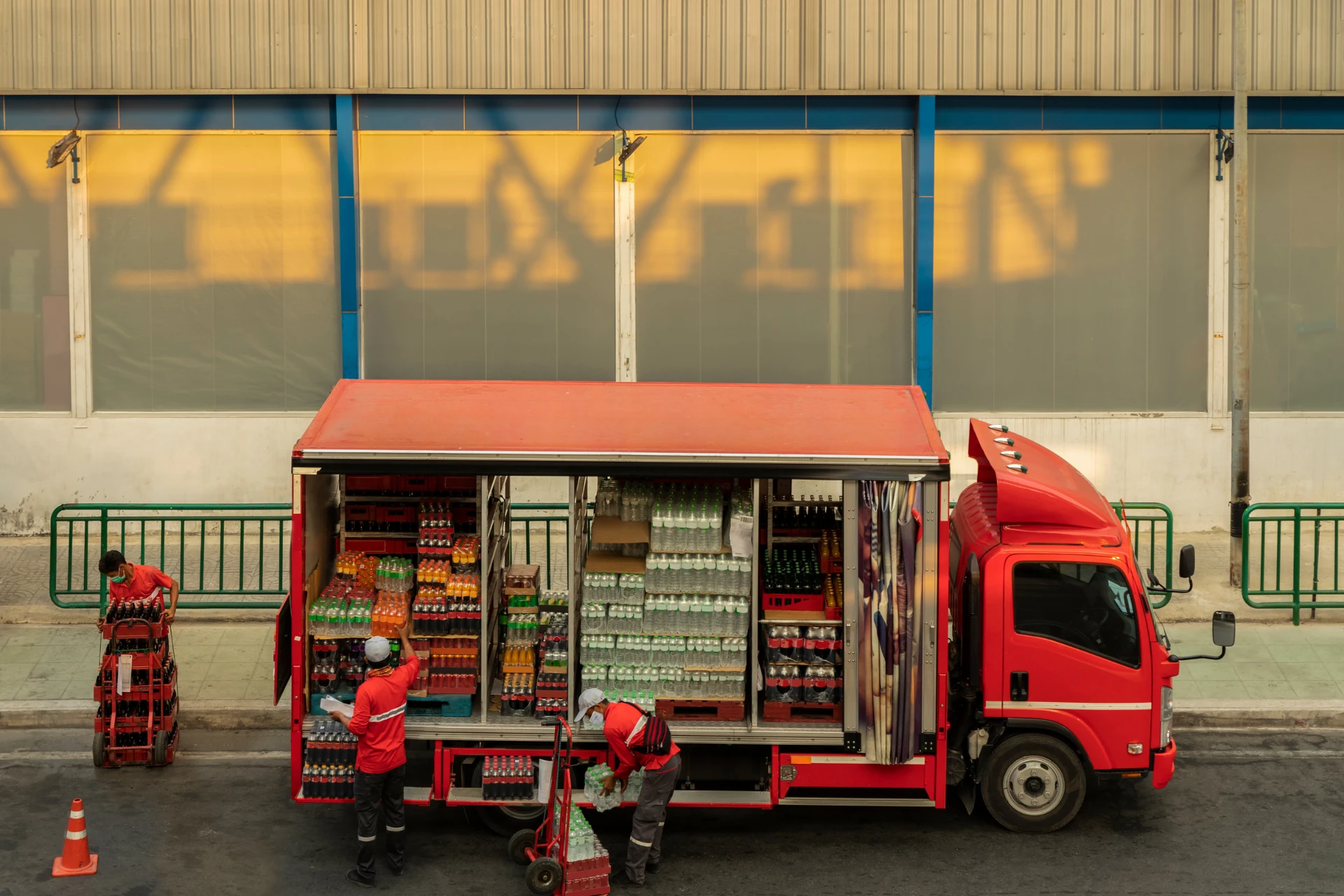Table of Contents
Join our
Mailing List
Stay up-to-date with BREW MOVERS latest news and service offerings.

Sustainable Logistics: Supply Chain Best Practices and Benefits
Published Date: 17 April 2023
Sustainability has become a key consideration for businesses across all industries, and logistics is no exception. With Earth Day coming up, it’s the perfect time to think about how to make logistics operations more sustainable.
Sustainable logistics help businesses reduce their environmental impact and improve their bottom line through increased efficiency and reduced costs.
It’s all about finding ways to transport goods and meet customers’ needs while minimizing the negative impact of supply chain activities on the environment. This involves reducing carbon emissions, using eco-friendly packaging, and ensuring the ethical sourcing of materials.
By adopting and implementing sustainable logistics practices, businesses can reduce their carbon footprint and conserve natural resources. Mitigating climate change enables companies to boost their public image, create new markets, reduce supply chain risks, and ultimately increase profitability.
In a world where customers are environmentally and socially conscious, sustainable logistics has become a necessity for businesses to stay competitive.

Getting Started With Sustainable Logistics
Step one is setting clear sustainability goals for your logistics operations, including reducing carbon emissions, minimizing waste, or improving sustainable logistics and supply chain management along with working conditions for your employees.
Once you have identified your goals, you can assess your current logistics operations to see where you can make more sustainable choices like switching to more efficient transportation vehicles, investing in environmentally-friendly packaging materials to reduce waste, or working with suppliers who prioritize sustainability.
Ultimately, the key to getting started with sustainable logistics is to take action and commit to continuous improvement in your logistics operations.
The Importance of Sustainability in Logistics and Transport
Sustainability in logistics and transport plays a crucial role in protecting the environment, promoting social responsibility, and improving economic growth.
By reducing carbon emissions, conserving natural resources, and adopting renewable energy technologies, sustainable logistics can significantly reduce the negative impacts of transportation on the environment. Moreover, it contributes to creating fair and safe working conditions for logistic staff and improving supply chain efficiencies.
Sustainable logistics can also benefit businesses by reducing operational costs, driving innovation, and enhancing brand reputation. Implementing electric or hybrid vehicles, optimizing delivery routes, and improving packaging and materials can all contribute to the bottom line. It’s a win-win situation for businesses and Mother Earth.
Best Practices for Sustainable Logistics
Here are several best practices you can use to create a sustainable logistics strategy.
Using Electric Vehicles
Electric vehicles are becoming increasingly popular as companies look for ways to reduce their carbon footprint and increase efficiency. Electric vehicles provide zero-emissions transportation, reducing air pollution to help mitigate climate change.
Additionally, EVs are more efficient than traditional combustion engines because they convert energy more effectively. Thanks to advances in battery technology, electric vehicles can now travel longer distances before needing to be recharged.
Route Optimization
Another way to create a green logistics strategy is through route optimization. Businesses can optimize routes to save fuel and reduce emissions by leveraging GPS technology and data analytics.
For example, reducing the distance traveled or the time spent idling in traffic can help. Additionally, route optimization can help reduce costs by allowing businesses to plan around delays or detours caused by traffic or weather-related hazards.

Aligning Your Supply Chain
Aligning parts of the supply chain is critical for creating a sustainable logistics strategy. Sharing data between different departments and suppliers can help identify areas for improvement and lead to more sustainable practices.
By working closely with suppliers and partners who share similar values related to sustainability, organizations can ensure their supply chains are as efficient and eco-friendly as possible. Work with providers that use green materials, minimize waste, and optimize their packaging through reuse programs.
Finding Freight Consolidation Opportunities
Freight consolidation offers an excellent opportunity for organizations looking for ways to reduce their environmental impact while maintaining efficiency in their supply chain operations.
By combining multiple orders into a single shipment, freight consolidation lowers transportation costs, reducing the number of shipments required while delivering all products on time. Moreover, using fewer trucks or larger capacity trucks to limit the overall number of trips will decrease fuel consumption and reduce your carbon footprint.
Considering Alternative Modes of Transportation
When creating a sustainable logistics strategy, you can consider alternative transportation modes such as railroads or waterways whenever possible.
Unfortunately, these modes are only sometimes feasible due to location constraints. Still, they offer numerous benefits, including reduced congestion on roads leading to fewer CO2 emissions from trucking operations, and improved safety due to fewer on-road accidents.
For example, for distances over 2,000 miles, transporting your freight by rail can be the most cost-effective option.

Tracking Key Metrics to Improve Performance
Tracking key metrics is essential for understanding how well your organization performs when it comes to sustainability initiatives.
Key metrics should measure things like fuel consumption, emissions levels, number of shipments per mile/kilometer traveled, or carbon footprint per unit of product shipped or delivered. Over time, these metrics will help you identify areas for improvement in your organization’s supply chain.
If you’re looking to reduce diesel emissions during cold chain shipping, consider investing in a Pallet Parka to move your products dry while still keeping them cold. You’ll also save money and help the planet by reducing the amount of energy you expend refrigerating.
Working with Providers That Value Sustainable Logistics
When selecting providers, look out for those who have taken steps toward improving their sustainability initiatives. Supply chain logistics providers who share your sustainability values can help ensure sustainable practices are followed.
This could include implementing renewable energy solutions, investing in technologically advanced fleet management systems that track data points related to performance, and investments made toward green initiatives.
Building a Profitably Sustainable Future
Sustainable logistics is more than just a buzzword.
Conventional transportation, warehousing, and distribution practices can harm the environment. However, an eco-friendly approach can help reduce carbon footprints, minimize wastage, and promote a healthier and sustainable environment.
With the world moving towards a greener future, it’s time to take sustainable logistics seriously and incorporate environmentally-responsible practices for your business.
Contact us today to learn more about sustainable logistics, and how we can help make your operations more eco-friendly!




